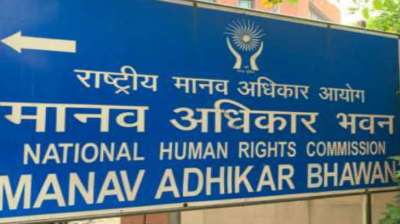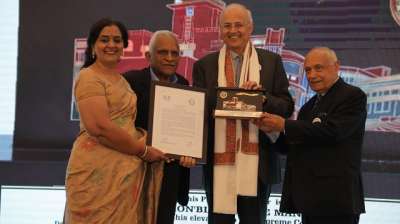AIIMS Bhopal Study Finds Pranayama Enhances Heart Health and Reduces Stress

AIIMS Bhopal Study Finds Pranayama Enhances Heart Health and Reduces Stress
Under the visionary guidance of Prof. (Dr.) Ajai Singh, Executive Director of AIIMS Bhopal, the institution is launching a 30-day campaign titled "Yoga Rakhe Nirog" (Yoga Keeps You Healthy) to commemorate the 11th International Day of Yoga. This wellness initiative aims to promote the numerous health benefits of regular yoga practice among the community. This initiative is being spearheaded by the Department of AYUSH with the objective of integrating yoga into daily life to promote a healthy lifestyle. Learn yoga every day, keep yourself healthy. As part of the campaign, participants will be introduced to a new yoga posture each day, along with information about its specific benefits. This initiative aims not only to spread awareness but also to encourage individuals to take responsibility for their own well-being. To ensure this valuable information reaches as many people as possible, everyone is requested to actively share it within their communities.
Strengthening the scientific foundation of the campaign, a significant study was recently conducted by the Departments of Physiology and AYUSH at AIIMS Bhopal. The study, which focused on Right Nostril Breathing (RNB) and Left Nostril Breathing (LNB), found significant improvements in Heart Rate Variability (HRV) — a key indicator of autonomic nervous system function and overall heart health. Conducted on 20 experienced yoga practitioners, the research revealed that even five minutes of practice led to a measurable increase in parasympathetic nervous system activity — responsible for relaxation and reduced cardiac stress. Both RNB and LNB produced favorable autonomic responses, with LNB showing a slightly stronger influence on relaxation and stress reduction. “Pranayama naturally slows down the breathing rate, which in turn calms the heart,” explained Dr. Varun Malhotra, lead author of the study and faculty member at AIIMS Bhopal. “Our data showed a consistent reduction in heart rate and a shift towards parasympathetic dominance, which indicates improved cardiac resilience and stress management.”
The findings are aligned with traditional yogic wisdom, which describes LNB as having a cooling, calming effect, while RNB is linked to stimulation and increased energy. The study, published in the Journal of Education and Health Promotion, strengthens the scientific evidence supporting pranayama as a low-cost, non-pharmacological tool for managing cardiovascular and stress-related conditions. Dr. Danish Javed, Senior Medical Officer, AYUSH Department, AIIMS Bhopal, highlighted yoga’s broader impact: “During the peak of the COVID-19 pandemic, we introduced online yoga sessions for patients, and the feedback was overwhelmingly positive. Many patients reported reduced anxiety and improved wellbeing. We continue to organize regular yoga and meditation sessions for patients at AIIMS Bhopal.”
Speaking on this achievement, Prof. (Dr.) Ajai Singh emphasized the importance of integrating traditional knowledge into modern healthcare. He said, “At AIIMS Bhopal, we are committed to validating time-tested Indian wellness practices through rigorous scientific research. This study on pranayama showcases how simple breathing techniques can offer profound benefits for heart health and stress management. We aim to make such interventions an integral part of preventive and promotive healthcare.” The study also calls for further long-term investigations to evaluate sustained benefits, but its immediate implications are significant, especially as lifestyle-related illnesses like hypertension, anxiety, and cardiac diseases continue to rise. As Madhya Pradesh advances yoga in tourism and public health domains, research from institutions like AIIMS Bhopal plays a crucial role in bridging traditional wisdom with modern medicine
















 ग्वालियर में 'उड़ता पंजाब' की तर्ज पर अफीम तस्करी का भंडाफोड़, करोड़ों की खेप बरामद
ग्वालियर में 'उड़ता पंजाब' की तर्ज पर अफीम तस्करी का भंडाफोड़, करोड़ों की खेप बरामद मंडला से इटारसी तक मूसलधार बारिश का कहर, जुलाई की शुरुआत में ही खुले डैमों के गेट
मंडला से इटारसी तक मूसलधार बारिश का कहर, जुलाई की शुरुआत में ही खुले डैमों के गेट
